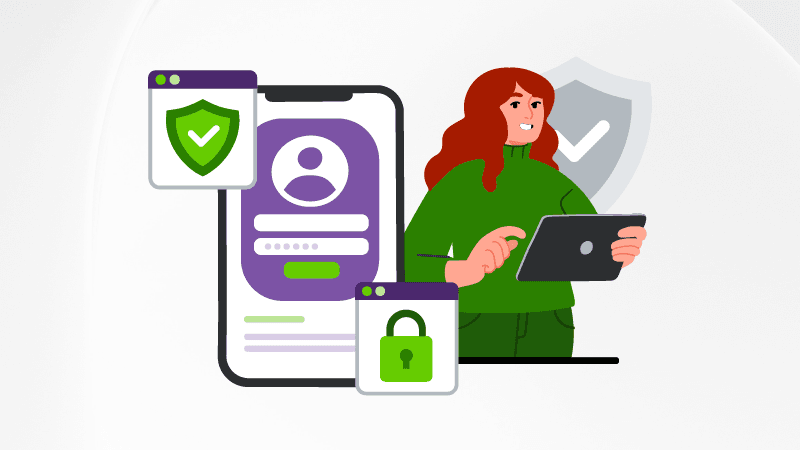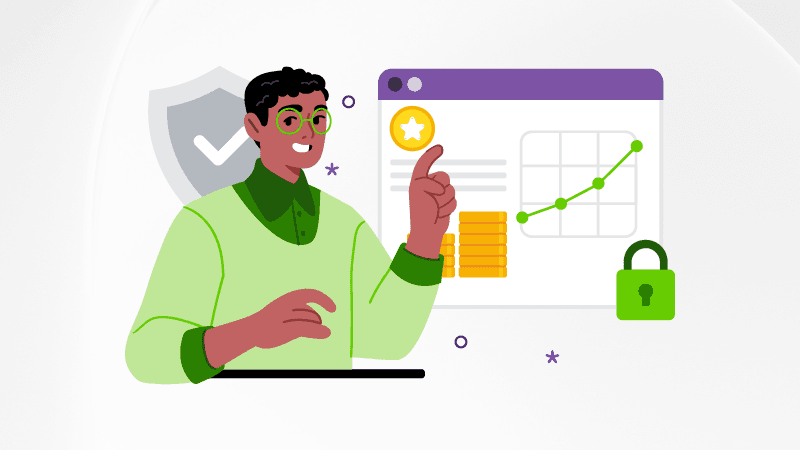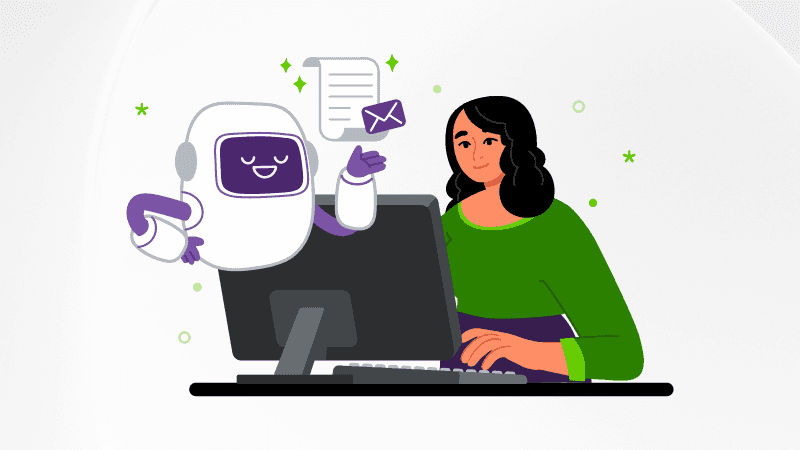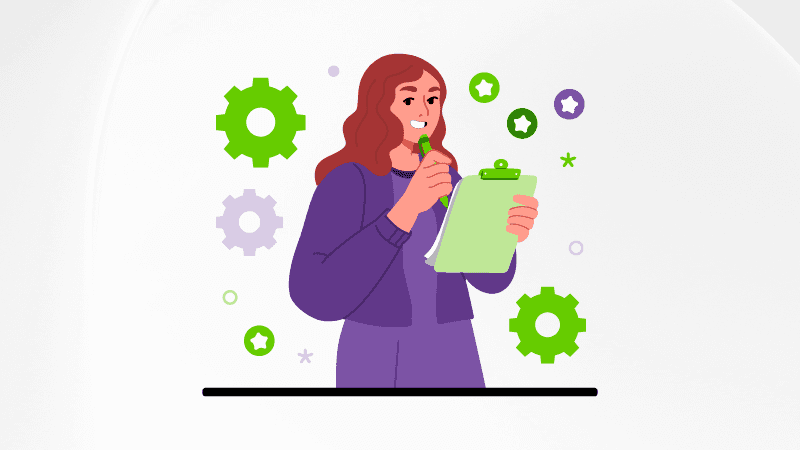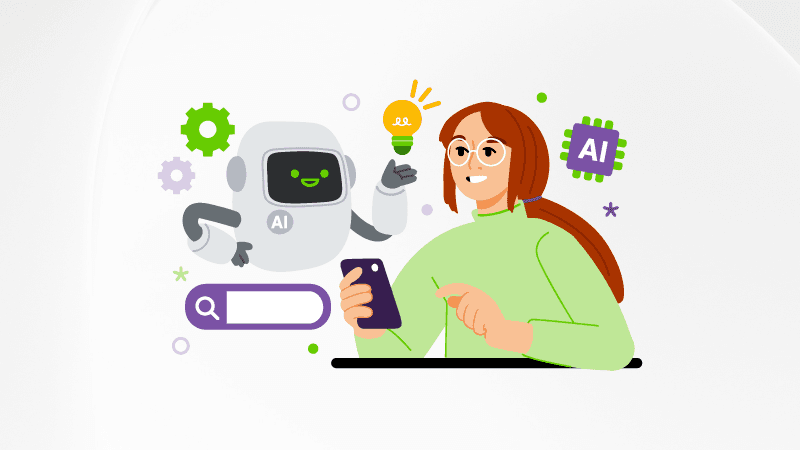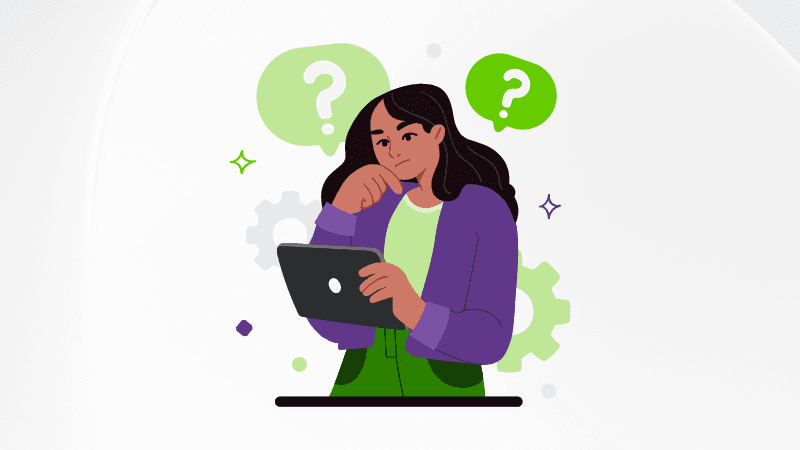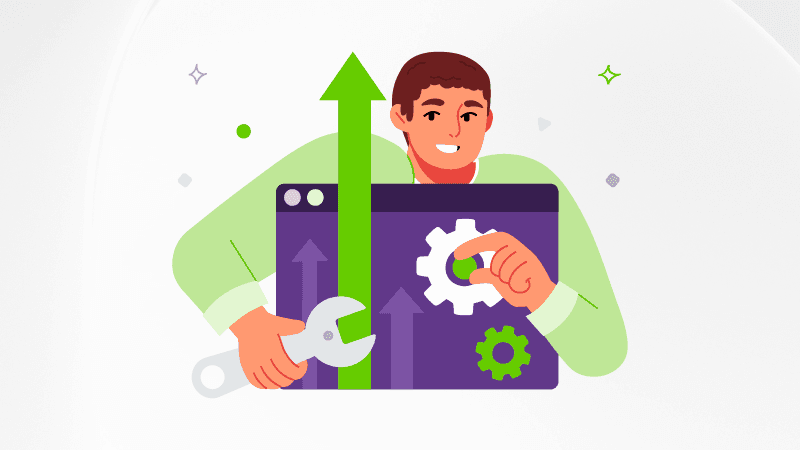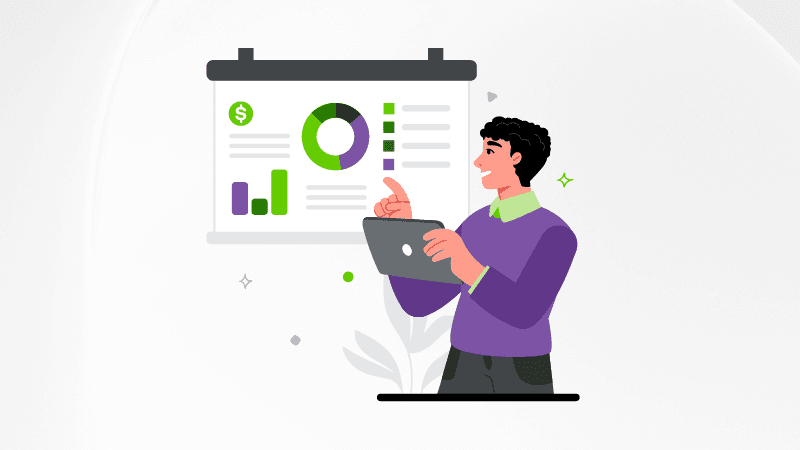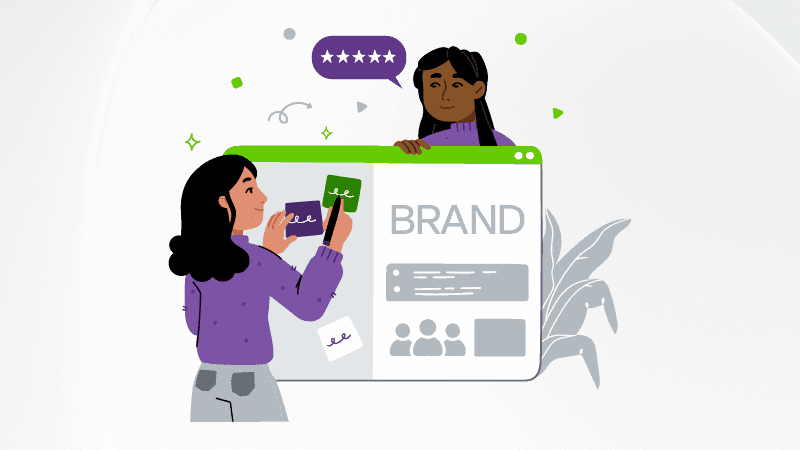Since publishing this episode, we've rebranded to TELUS Digital.
It makes good business sense: happy employees lead to happy customers. On this episode, Evelyn Doyle, HR Director EMEA at Patagonia talks to us about how empowering employees to be a part of something bigger is the secret that's stitched into Patagonia's fabric.
Culture, purpose, and being part of a change is something that Patagonia has taken very seriously since day one. By encouraging team members to take part in climate action protests, and supporting them on their path to learning about sustainability, this mission-driven organization understands that great employee engagement cultivates a great customer experience.
To learn more about TELUS Digital and our digital CX solutions, contact us today.
TRANSCRIPT
Intro: TELUS International Studios where customer experience meets digital transformation.
Patrick Haughey (PH): And welcome back to TELUS International Studios. An original podcast series about world-class customer experience and the people who shaped it. Brought to you by TELUS International. I’m your host, Patrick Haughey, and in this episode I am joined by Evelyn Doyle, HR Director EMEA at Patagonia. Patagonia is a company that is world-renowned, not only for making high quality, sustainably produced clothing but also for the courageous decisions it makes in order to do the right thing. Whether that is investing heavily in sustainability or empowering team members to take part in climate action protests. And empowering team members will be a key theme of this episode I think. Culture, purpose and being part of something bigger is something that Patagonia has taken very seriously from day one. And the company has a deep understanding of how great employee engagement can lead to great customer experience. And to hear more about all of this, I am delighted to welcome Evelyn Doyle to TELUS International Studios.
Evelyn Doyle (ED): Thanks a lot, Patrick. Good to be here today. Thank you for having me.
PH: You’re very welcome. Of course, because Patagonia is one of those companies that has an incredibly strong brand and is incredibly well known. So maybe just before we get into the meat of our conversation, so to speak, just describe what Patagonia is. And I guess what the main thrust of business is today.
ED: Sure. Yeah. No, again, back to your statement there. Just very proud to work for such an organization as Patagonia. First and foremost, we’re a mission-driven business and organization. Yes, we make clothes and outdoor equipment for people who love wild spaces and to play and work in the outdoors. But more importantly, and it has been our, you know, DNA for 40 years of our existence, forty-plus years, is that we are in business also to inspire others to come up with solutions to the environmental crisis. We’ve always had the environmental crisis and the environmental concerns at the forefront of our mission. So we believed always and still do that we’re not just in business to make something and extract from our planet. We’re also in business to take care of the community and the planet that we live in, which is planet Earth. Yeah.
PH: And you mentioned being a mission-driven company there. And I think today and over the last couple of years, we’ll hear a lot of companies saying this and, you know, not to disparage any companies at all, but I think there’s an expectation that you know, to do business today, you kind of have to have a mission and, you know, let’s spend some time and put some real investment into crafting something that sounds good. And, yes, that’s aligned to our new company values. But I think what’s interesting about Patagonia is this has been there from the very start. You crafted your very first mission statement as far back as 1991. Let’s say before maybe it was cool to do so. And I think that’s quite significant.
ED: Yes, it’s true, it’s funny how you put it that way before it was cool to do so. I think we’ve always been before it’s cool to do. I think, you know fundamentally, Yvon Chouinard, who is one of the owners and founders alongside his wife, Melinda Chouinard, both, you know, one hundred percent still own Patagonia. You know, it’s a privately held organization. We were the first benefits corporation also within the state of California. Yvon Chouinard and Melinda both have a love of the outdoors and a love of nature and a love of protecting wild spaces. And that has always been part of Patagonia’s mission. So when Yvon many, many years ago first started off Chouinard, you know, what is Patagonia today? Making equipment for climbers because he loved the mountains and he was a climber himself. When he realized, you know, the harm that the pitons that he was making and creating and selling to Patagonia were actually harming the place where he played in i.e. the mountains. When he realized that, he went back to the business. And this is back 40 years ago and realized that “Hey, we’re going to have to change course here, which is financially burdensome and is going to create complexity and challenges.
But it’s doing the right thing because I don’t want to harm the place where I play and then the place where we make things for.” So fundamentally, they’ve never shied away from doing the right thing, even if doing the right thing means having either financial consequences to the business and making very tough decisions. Which we all know, that’s where a lot of companies shy away from that because perhaps they’re shareholder driven and they have other, you know, things that they have to kind of take care of or take account of. But that still doesn’t mean, and I don’t also believe that fundamentally, I think you can still do good business.
Even as a shareholder driven organization there’s many, many, big organizations really trying to go towards there now. But fundamentally, we have never shied away from, you know, doing good business and doing the right thing. And doing the right thing means that you have to look at things holistically. You’re part of the community. You’re extracting from planet Earth. And that’s also why Yvon Chouinard feels from, again, one of the very first companies to pay, you know, in the one percent for the planet. So we believe, and Yvon Chouinard has publicly stated, that that’s our Earth tax. So he believes that if you’re a business and, you know, you’re extracting something from the planet in order to make something and we believe that we do make the best product that causes the least amount of harm. And I think that line in our original mission statement is very important because I think saying that we want to cost the least amount of harm acknowledges the fact that we do cause harm. We cause harm because we make stuff. You know, we have an industrial element to our business and to our organization. And that recognition is saying that, hey, hands up, we know and recognize that we cause harm, but we will constantly strive to make things better in our organizational set-up and systems and processes to cause the least amount of harm because that’s our job. That’s our duty. That’s our role as citizens of planet Earth. And Patagonia has never shied away from that again. Bit like the start of this company with the pitons and changing course on that, we also switched our full line to organic cotton as well in the 1980’s time and again, this was when, you know, many organizations felt that that was too burdensome, too complex too much work, probably to do that. But again, I think if we look globally and don’t quote me exactly on this, you know, there’s very few companies like ours in where we’re making fabric, we’re making clothes and we’re making equipment that has made that fundamental switch to organic cotton and all of their lines, you know, full stop. I think it’s between one and three percent globally. So that just shows you that if we can do it and, you know, we’re a medium-sized business in terms of we’re not medium size in terms of our message or our mission. But, you know, if we can do that in our product lifecycle and supply chain, I think that many other organizations can do the same. It does require work. It does require you to be nimble, and it does require you to recognize that you have to make that shift in how you do your business to take care of something more than just your financial growth.
So Patagonia has never been a company as well that is overly concerned about looking just at the figures and the cash flow and the financial numbers, it has always believed it’s in business as part of the community, as part of, you know, sort of the business, as a citizen of the world. And, you know, we have a duty of care to take care of our community, the people within our organization, the resources that we avail of. So it’s always been a holistic approach and a circular economy approach to business. And, you know, we’re not in the business of taking quarterly calls on financials and that’s, you know, the be-all and end-all. Of course, we do manage our cash and our finances. You know, we’re a business at the end of the day, but it’s not fundamentally the overriding thing. The overriding thing is, you know, any key decisions we make in a business, is this the right thing? Are we doing the right thing? And that’s been our DNA from the start, which is to build the best product, cause no unnecessary harm, and use our business to inspire others to solutions for the environmental crisis.
PH: And of course, and as you say, taking this approach does require some tough decisions sometimes. And when you’re going to be making these kinds of decisions that maybe go against what we’re used to in business, you know, more profit-driven mindsets. Then, am I right that it’s extremely important to have the right people on the bus? You have to be very careful about who you bring into the organization because they need to be very much on board and believe in this way of doing business as well.
ED: Yes, absolutely, and I mean, again, I think it’s even more significant for us as an organization, I mean, as recently as last year, this the original mission statement was changed to just one line by our owner and founder, Yvon Chouinard to ‘We’re in business to save our home planet’. And he specifically mentioned home planet because, you know, he doesn’t sort of buy into this concept that, you know, if we don’t fix this, well we can live somewhere else. And another one sort of concept is it’s the sense of urgency as well around, you know, the climate emergency and the fact that we’re heating up and that we have like literally only nine years as Greta said we want to act like the house is on fire. And I think by Yvon making that mission statement change, it’s sort of centered us and focused us on even more internally as well as externally, that we are fundamentally a mission-driven organization that is in business to save the home planet and do whatever we can ourselves and to inspire others to do that. So the people that we take into our organization and I want to come in and join us, it’s very, very important that fundamentally, whoever you are, and from whatever community you come from, that you have that in your heart, that you fundamentally believe there’s more than just doing a job. That you want to participate in a purpose and in a mission because, you know, people are talented, young graduates, et cetera, et cetera. They can go anywhere, do anything these days, you know. So we want people who really want to come to us because we are a business that wants to cause the least amount of harm in an authentic way and that we exist for more than just business alone and that we want to create the purpose, save the home planet and be inspiring to others.
So I guess the people that we’re looking for are inspirational people. I mean, a love of the outdoors and a love of nature, I think is fundamental if you want to join Patagonia. And also having that mission-driven part to you and to be passionate and to come to us with this intellectual curiosity as well, because I think what we have as a bunch of team members here in Patagonia, we have a lot of mavericks. We have a lot of people who want to ask questions. You know, we don’t really like to take in people who, you know, just sort of want to play the line or, you know, not ask the hard questions. And, you know, we kind of try to ensure that we’re not in any way a hierarchical company and that you can come into this company and bring your human self to work. We have people who come to us. They bring their dogs to work. And here in Europe, we have in our Amsterdam office, we have a dedicated parents room where, you know, parents can come in with their kids and also mothers with those who need to breastfeed so they can remain connected to work. So we have a very different sort of office set up.
And in our retail community, within our retail employee base, these are the people who we see in our retail, the bricks and mortars of our retail stores, as members of the community within the space and the country we operate in. We are a community hub, we’re an activism hub and the people that we bring into our retail sector, also within our organization, are people who are passionate. You know, when customers come in the door, they know that they’re going to meet somebody who loves the mountains as much as they do, who loves to surf as much as they do, who loves to trail run as much as they do, who loves to ski as much as they do. And they can speak to the technicality of our design. They can speak to that customer about, you know, saving planet Earth and environmental endeavors, because the people who generally want to buy our product are concerned about these things. They want to protect wild spaces. They have a love of good quality products. They have a love of good technical design and that’s what Patagonia is known for. So the people who we recruit within retail are truly passionate brand ambassadors, internal ambassadors and external ambassadors for what we do as a business. And I think it’s also important that we recruit people who want to really be ambassadors of our organization internally and externally, and to understand that they whatever their role is, whether it’s the accountant or someone in HR like myself, that we have a voice and that our voice and our role makes up everything that is to do with Patagonia. You know, if I take, for example, our accountancy team, we have accountants currently working, trying to change the banking system from within Patagonia, are working with us in HR trying to change the pension system. So looking at things from a systems thinking point of view and seeing how it is that Patagonia can be a platform and use their voice for change in all sectors and all industries by making banks accountable and saying, look, we don’t want you to invest in fossil fuels anymore. So the accountant is thinking about that and thinking about ways to partner with banks and talk about, you know, how can we change this internally in Patagonia. So, I think people who want to come and explore, be mavericks, ask hard questions, be passionate, have intellectual curiosity, a love of nature and the outdoors and protect this planet, they’re the kind of people we’re looking for. And of course, we love and we’re very inundated as well, thankfully, with people who are very talented and very skilled at what they do, because we do also need specific expertise.
PH: What it sounds like, what shines through there is that you’re looking for and in a very broad sense, a certain amount of bravery within the people within Patagonia. They need to have the courage to challenge, you know, accepted norms around systems and processes. They need to have the courage to make tough decisions. And it strikes me that that’s something that needs to be shown from a top-down perspective. And it brings to mind something very interesting from last year, a very brave decision where Patagonia essentially distanced itself from, you know, this sort of tech CEO, fossil fuel company. You know, the sort of the gilets or the vests and kind of made it very clear that we don’t want the Patagonia brand to be associated with people who are maybe incredibly focused on pure capitalism or things that don’t align with our purpose.
ED: Yeah. So making bold moves and challenging the status quo, that’s definitely part of the Patagonia DNA and it’s definitely part of something that we want to bring in to nurture and continue to develop within Patagonia with the people that we bring in that make up, you know, the culture that we have here. So I think, yes, being open to challenging that status quo and, you know, taking risks and making decisions that, you know, sometimes can be a lonely path for people.
That’s the thing that we want to do. Like we really nurture here the activism sort of spirit in people.
We feel, we ensure that our folks know it’s OK to bring your human self to work, to bring that passion to work. And this is seen like not only in that I think that move that, you know, our former CEO, Rose Marcario, had a big hand in playing in. But just like if we take it back to Greta Thunberg. She really, you know, shone a spotlight on the climate crisis and Extinction Rebellion, is another sort of what’s seen sometimes as a radical movement in the climate, challenging, you know, organizations and governments on the climate crisis. I think we’ve partnered up with the Extinction Rebellion here in Europe, whereby we have allowed our employees to participate in Extinction Rebellion events, marches. We have set about a bail policy so that if you get into trouble on environment, on basically marching or having activism about environmental campaigns or marches or protests and you end up arrested or in jail, we have a bail policy. We will pay that to get you out. We also have conducted last year with basically a criminal lawyer, you know, what it means if you got arrested. Tips and tricks in terms of, you know, how you can manage to stay safe.
We’ve also, you know, put together a civil disobedience training and, you know, to make sure our employees stay safe when they want to protest on important causes that are close to our hearts. So, we allow them the time of work to do that. So these, you know, the people that we have here are not afraid to question the system. And we try to also instill this system thinking approach. So system thinking means that you have to go to the root cause of the problem and not look at it just from the surface. And that means, you know, challenging the status quo like we’re doing with that piece about how we don’t want to be associated with just pure capitalism. We want to partner with people who want to really make the change, you know, that’s whether it’s partnering with others who run the B Corporation journey where, you know, you believe in the sustainable development goals. You believe that you’re part of a system that has to give back to society. And that’s the kind of culture that we try to nurture here. It’s OK to be an activist. It’s also OK if you don’t want to be on the front lines, but we’ll support you in your role, you know, to support others who perhaps do want to be on the front line for the causes that are close to our hearts.
PH: Very, very interesting. I really have to say that. From a very practical perspective, Evelyn, I’m sure you get thousands of applicants for every one role going in Patagonia. And I know you have an extremely popular internship program where you got 9000 applicants for you, only for just 16 positions. And from a very practical perspective, that’s tough. It’s really tough for somebody like you and your team to try and find the right people within a group of so many applicants. So from a practical perspective, how are you doing that? How are you trying to find the people who will most closely align with those values you’ve just spoken about?
ED: Yeah, that’s a good question, Patrick, and I mean, I think there’s there’s sort of two strands here because I also want to be careful and acknowledge, you know, in these times of justice, equity, diversity and inclusion, I think it’s also important to say that while we welcome, you know, we want to bring people into our organization that are mission-driven. We also realize that, you know, sometimes there can be barriers to that as well within our own organization. And while we want to build a certain culture, we also have to take into account that we don’t want that to become a cult. And that’s also a fine balancing act. And, you know, part of the sort of the balancing act you have to create with the diversity is really embracing that diversity and culture add rather than culture fit. So, really acknowledging that person for the whole of themselves and what they can bring to the organization. So that’s one strand of it, I think. Yes. Thankfully, unlike many other organizations, I’ve worked as somebody who oversees recruitment and attraction. I’ve never really had to sit down and have long debates about employer branding because sort of Patagonia’s is by word of mouth.
It’s just recognized for what it is. And we do have a hard time with really getting around to everybody who applies to roles like, for example, we had an Environmental Leader role about five years ago when I first started in Patagonia that had 1,800 applications right across the world. It’s very difficult. And these people would have given the right hand, you know, to take on that role. And we had to narrow it down to 20 to find, you know, the Mahallah that we did find to be our Environmental Leader in Europe. But that takes a lot of work and effort. And we have a referral system in Patagonia because we like to also we feel that, you know, our ambassadors here internally, they have a network of friends, colleagues, families, that they may want to refer to Patagonia because, you know, they’re either playing with them in the outdoor space or whatever, or they’re joining forces with them on protest with regards to the environmental crisis.
So I think we use the referral system. We do use agencies and headhunters when we have niche roles. But honestly, we were just inundated most of the time with applications. And most of the time, it’s just hard work for me and our HR team and recruitment team specifically to get through all of that. To the point that you know, on our careers webpage, we do have to write out now to say that, look, we unfortunately, cannot get around to everyone. And that’s a pity. But like, you’d want a lot of people on the team sheet to get around to every single individual that applies to us. All I can say is that I encourage people to continue to knock on our door and we’re very, very informal in this. I, I don’t know. I spend a lot of my time meeting people informally for coffee who want to join us, but maybe we don’t have the position. But we also feel that that’s important to us as Patagonia, that we meet people informally for that coffee chat because we want to make sure that, you know, we’re connecting people to us. And we also share with them that, look, right now, we may not have a position for you, but you can be connected to the journey to Patagonia, Zombi, coming to our lunchtime talks, by coming to our evening events, by participating, you know, in maybe some of our campaigns. So, you know, we already, semi onboard wannabe candidates with us by making sure we involve them in the community that we’re in and the community we’re in is campaigns. It’s taking action. It’s partnering with people like Extinction Rebellion, but also, you know, save the rivers and, you know, in our Blue Heart campaign, we partnered up with many people who wanted to save the last free-flowing rivers in Eastern Europe. So, we actively advocate for and ensure that, you know, we stay connected to people who do want to join us, but maybe don’t have that opportunity yet because that role is not there.
But everyone plays a part in our story and in our journey as Patagonia. And that’s why we also have a lot of external ambassadors who want to join forces with us as well.
PH: And as well, you know, we obviously have a very strong focus on the customer experience on TELUS International Studios. And I’m curious about your thoughts on how having such a strong internal culture and, you know, being so clear about what you want and who you want on the Patagonia team, driving everything forward. The impact that has on customers as well, in a way, do you feel that your customers are also brand ambassadors? They’re wearing Patagonia clothes, not just because they’re high quality, but also because it makes them a part of this movement and this campaign, just like your internal teams?
ED: Oh, absolutely. Patrick, I mean, we are, you know, absolutely linked to and connected up to our consumer, to our customer, and, you know, we cherish that and we put a lot of time and effort and focus within our customer service’s teams, right across Europe and globally, to ensure that we remain connected to our consumer. And it’s very important that we converse with and tell stories with our consumers. And our consumer, you know, we have a platform called Patagonia Action Works. And, you know, that’s again, I think unique to Patagonia in that that platform connects up a myriad of NGO’s and other businesses to each other via this platform who want to, you know, either get advice or build capabilities together or volunteer their time, you know, to good causes. And those causes are fundamentally around, you know, making this planet a better place. You know, how can we reduce, reuse, recycle? You know, how can we really bring about accountability and sustainability? And Patagonia Action Works is also where our consumers interface with us as well. Another example of how we interface with our consumers in a real, authentic way is our Worn Wear story and concept. Our Worn Wear tours are, you know, we basically can repair anything for you for free. And that includes other peoples, other companies goods. You know, we have vans going around to the spaces we play in and are situated in, whether it’s our retail stores, our offices, the mountains or the surfing venues or the activism spaces, our vans, we have Worn Wear vans kitted out with people who can repair our clothes. Some of those are even our own people internally and people that we bring into our community who have that expertise. And, you know, we connect with our consumers sharing their stories about their best love, better sweater, or vest that they have had from Patagonia and climbed the mountains and, you know, there’s a few rips or tears in it and they’d like us to repair it. And we repair it for them. And we listen to their story and we listen to their feedback. And, you know, that’s again, it comes back to what we talked about earlier in our discussion. This storytelling element, and that everybody connected to us and how we interface with our consumer. We also believe our consumer is our ambassador because these are people who really want and have a passion for our technical expertise for causing the least amount of harm because they love and take pride in the spaces that they play in.
And they don’t want they’re not your average consumer. As in, they think about their consumption, generally speaking, our consumer, as we do, of course, think about our production. And, you know, generally speaking, they want to share in that story and wear that sweater for something more than just, you know, buying that sweater. So, I think we have a very conscious consumer, just the way that we’re a very conscious organization in how we lead and how we produce. And I think it’s all connected.
PH: Well, I think it feels at the moment that we’re in such a world driven by fast fashion and, you know, a race to the bottom in terms of the price of cheap clothing that’s so disposable. And it seems to me that there are so many people out there who want to actively and visibly differentiate themselves from that and show the world that I am not on board with this fast fashion movement and everything that comes with it. And in a way, brands like Patagonia kind of empower them to do that in the sense of, you know, bringing them into a community that you are creating and allowing them to show and quite a visible way that they are different in the same way that Patagonia is different.**
ED: Absolutely, and I mean, I think that people genuinely who buy and want to wear our brand, you know, carry that definition with them. And I think that what we, you know, a good few years ago, you know, I think you probably have researched this as well, we brought out that famous ad in the paper saying, “Don’t buy this jacket,” and it created the kind of furore at the time, you know, oh, is that Patagonia?
You know, what kind of sort of consumer mind tricks is it playing? You know, it really just wants to sell more stuff. And it’s putting out this ad to say, don’t buy this jacket. And, you know, again, I think this ultimately led us to the journey we’re in today that we’ve been in from the start. And, you know, we keep having to make inroads . This is to say that we consume and we recognize also that we are producing something and selling it to a consumer and, you know, that that has an impact. What we’re really fundamentally, I think, trying to achieve now with our mission is really through our customers getting people to think carefully about how they consume. And this inspires then other organizations to think about how they’re producing because, you know, people want to spend their money now more and more with thinking about, you know, what is this company doing with regards to fair labor, ensuring good supply chain practices, ensuring that they’re not just producing for production, say, sake.
I mean, there are many things, especially in the apparel sector, where we’ve seen a lot of with the fast fashion. People really having to be, you know, brought to the mires in public relations and in the media as well.
And consumers really boycotting these companies because they’re not treating either the workers in a fair manner or, you know, they’re not treating the Earth in a fair manner because they’re just, you know, it’s just fast, fast industry let’s say, never mind, just fast fashion. So, consumers now are really putting it up to companies about how they make things and how they produce things. And I think also in this period of time during COVID-19, I think we’re even seeing that more and more. You know, people have really started to take a reset and a rethink about what’s valuable to them. And I think, you know, I think a lot of companies are saying now that people have really taken stock of what’s important in this in this life and ensuring that, you know, you’re living your life as a good citizen that, you know, is also having a voice in changing industry or changing government as point of view and how we do business.
PH: Well, look, on that, one of my final questions to you, to Evelyn. If there are anyone, you know, in a HR Directorship position or a Customer Experience Lead position, listening to the podcast who feel that, you know, maybe this is a time that we maybe take a little tweak or approach a little bit and maybe double down on doing good, so to speak, on trying to do things better maybe than we have been. And, you know, we can all we can certainly all do that. What would your advice be? Would you say to them that it doesn’t matter what industry you’re in, you can always sort of do good and try and not give back to the world as much as you’re taking, so to speak?
ED: No, absolutely, Patrick. I fundamentally believe, and I really have learned and been on a learning journey myself with being part of Patagonian, a mission-driven organization. I fundamentally believe any company or any industry can go on the path to do good business. And I also believe now, especially with the planet on fire, it’s also a moral obligation on leaders.
And I think first and foremost, while it is a ground-up, it’s both a ground-up and a top-down approach to tackling this in any organization. I fundamentally believe that as a leader in a business, you have a certain entrepreneurial license. And that means that you’re not trying to, you know, change a governmental bureaucracy. You know, you have a business, you have a live living system. And I think it’s becoming on leaders to think through the prism of systems thinking change, to have intellectual honesty, you know, with their employee base and with their shareholders and really bringing about, you know, what’s the right signal and all this noise happening right now. And steering the organization, the key leaders in that and employees in the right direction. And making the fundamental business case that, you know, happy employees who are given a voice, who feel that they have a purpose and that their own organization is involved when they go home at the end of the day to their children or to the places that they love to visit for their sports, are the nature in itself that we all inhabit, that if their organization is playing an active role in, you know, ensuring that there are fair practices for all involved in their business, that, you know, there is some return to employees for being involved in that business and that they’re treated fairly and with respect, and that we are doing something also to give back to the planet because we’re extracting from the planet.
I think it makes business sense to the consumer that you want to engage with because, you know, most companies are not going to get away from the consumer voice on this topic going forward. So I think they have to stand up and acknowledge that, you know, they do authentically have to become more compassionate and more conscious as leaders because happy people within your community and within your organization really does lead to that, you know, better engagement. And ultimately, you know, you’re going to have the best diversity and the best inclusion in terms of your employee base within that organization. And you’re going to have talent who really wants to, you know, make change and have a win-win for you and your business and the consumer. And I think, you know, this is really, really a time now in the world and in society that I think really it fundamentally stops with the leadership. And I think, you know, signing up to one percent for the planet, really aligning yourselves with the fundamentals of the B Corporation movement, which means that you stand for more than profit alone because, at the end of the day, we all make something from this planet Earth. So, therefore, we have to give something back to her. And I think our employees want us to do that. Our consumers want us to do that. And it’s becoming us as shareholders, as leaders to ensure that that happens.
PH: Well, I know Patagonia has many interesting plans and innovations in place to stick to stay true to this mission, such as, you know, moving towards carbon neutrality, using only recycled products in the manufacturing process along the way. So we’re going to watch with interest how you continue to navigate that course over the next few years Evelyn. And having spoken to you and you are very persuasive and you’re very clear about this.
And I’ve already just emailed you my CV because I now want to work for Patagonia as a result of this, as I’m sure our listeners would as well. So Evelyn Doyle, HR Director EMEA of Patagonia, it’s really has been fascinating speaking with you. And thank you so much for taking the time to share your story and share your message with us today.
ED: No, no, thank you, Patrick, for listening. And also thanks for the good questions. And I’ll just leave you with someone also who, you know, I think a lot about in terms of Joanna Macy, you know, she wrote a book called Act of Hope. And, you know, I think this is something also that, you know, Yvon Chouinard, Melinda through Patagonia is, you know, this is something you know, you asked me that question - can any industry do this? You know, be on the journey to do good business. And I think this is something we do rather than, you know, it’s a must-have. You need to be clear about, Joanna Macy says; “An act of love is something we do other than have and be clear about what we hope for.” And essentially that means, you know, your intention to act.
So I think, you know, for all companies out there, what’s your intention? What’s your authentic intention? But it’s no good to just have that intention. You must act. And I think Patagonia fundamentally has proven it through its actions. And I think that’s where we need to go. So thank you for your time today.
PH: Thank you so much, Evelyn. And continued success for Patagonia. All the best. Thank you. And I really enjoyed that interview. And thanks to you for tuning in. We will be back with a new episode of TELUS International Studios very shortly.
If you like what you hear, make sure to hit that subscribe button or follow button so that you do not miss an episode. And if you’d like to find out more about TELUS International and the global and disruptive brands with whom we work, check out telusinternational.com. Until the next episode, take care.
Explore recent episodes
Hear from experts discussing the most timely topics in customer experience.
Suggest a guest or topic
Get in touch with the Questions for now team to pitch a worthy guest or a topic you’d like to hear more about.
Email the show
